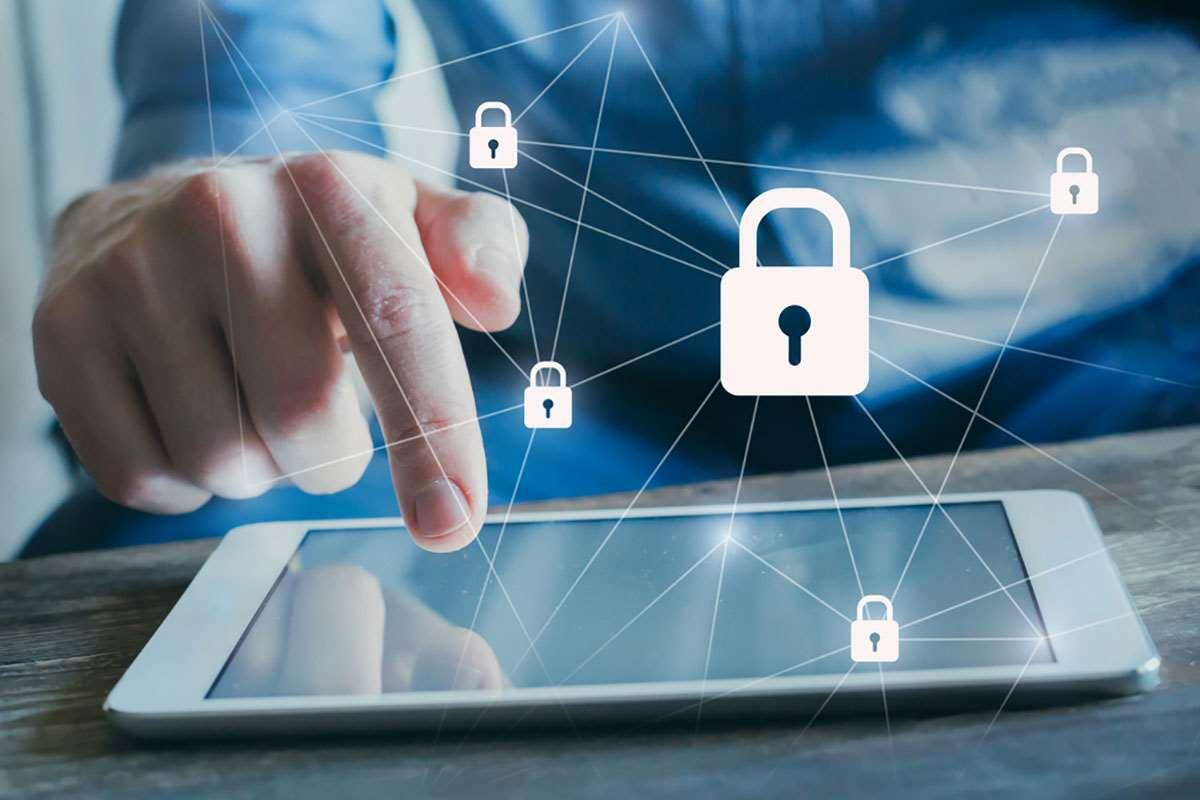
Content
These are sometimes called cold wallets or cold storage, and they store your keys completely offline on a device not connected to the Internet. Many popular cold wallet devices look similar to a USB drive. Sometimes paper wallets — wherein you print information about your public and private keys onto a sheet of paper — are even used as cold storage. The are two main types of wallets, custodial and noncustodial.

One option is a software wallet or hot wallet that stores your crypto on an internet-connected device that you own. When choosing a storage option for your crypto, you should assess your risk tolerance and goals, as well as your knowledge level when it comes to crypto. If you want to hold your coins long-term and don’t plan to do any trading, cold storage might make the most sense. But if you’re a beginner and generally careful about the amount you invest, you may prefer the simplicity of being able to buy and keep your coins within an exchange. Danial equates it to your bank’s ability to simply freeze your account.
Your cryptocurrency is only as safe as the method you use to store it. While you can technically store crypto directly on the exchange, it is not advisable to do so unless in small amounts or if you plan to trade them frequently. Maintaining a multiple-currency wallet is certainly more convenient.

Information provided on Forbes Advisor is for educational purposes only. Your financial situation is unique and the products and services we review may not be right for your circumstances. We do not offer financial advice, advisory or brokerage services, nor do we recommend or advise individuals or to buy or sell particular stocks or securities. Performance information may have changed since the time of publication. “All you need to do is enter the recipient’s public address and the amount of cryptocurrency you want to transfer and confirm the transaction,” Leinweber says.
A wallet hosts the details of the key pair making transacting cryptocurrency possible. Multiple methods exist for storing keys or seeds in a wallet. Are essentially apps that run on your Android or iOS smartphone.
After you’ve purchased the device, you’ll need to download the software to accompany it from the official company website. Hardware wallets are the most popular type of wallet because you can store your private keys and remove them from your device. These devices resemble a USB drive, and modern hardware wallets have several features. Non-custodial is the term given to cryptocurrency wallets, like MetaMask, Rainbow Wallet or Trust Wallet, that are separate from the accounts you may have on cryptocurrency exchanges. When you hold money on a crypto exchange, like Binance, Kraken or Coinbase, those companies are in control of your cryptocurrencies. But when you move your crypto to a non-custodial wallet, you hold the keys to your wallet.

Online wallets, also called software wallets, are your hot wallets. Desktop, mobile or web-based applications, these wallets require an internet connection and are both more accessible but also more prone to hacking than cold wallets. Like a USB drive, hardware wallets help keep your private keys safe from hackers who would need to steal the physical wallet to gain access, Leinweber says. This is especially important for custodial wallets, as your private keys aren’t under your control. The best exchanges for storing crypto protect your assets from security breaches and are easy to navigate. Crypto enthusiasts often see cold storage as the gold standard for protecting your digital assets.
The Structured Query Language comprises several different data types that allow it to store different types of information… Jaxx enables a user to exchange currencies within the wallet. It is available for Bitcoin, Ethereum, Litecoin, and many other cryptocurrencies.
How do you know if the crypto wallet address is legit? How do you know it's not a phishing scam?
Here's a Telegram bot from @MetaCert that you can use to check addresses.
This is the service being integrated with some wallets/exchanges. Now verifying ICOs/Token addresses pic.twitter.com/lruag5QlDN
— Paul Walsh (@Paul__Walsh) April 25, 2018
CoinDesk is an independent operating subsidiary of Digital Currency Group, which invests in cryptocurrencies and blockchain startups. CoinDesk journalists are not allowed to purchase stock outright in DCG. Non-custodial wallets, on the other hand, allow you to retain full control of your funds since the private key is stored locally https://xcritical.com/ with the user. While a public key is like your bank account number and can be shared widely, your private key is like your bank account password or PIN and should be kept secret. In public-key cryptography, every public key is paired with one corresponding private key. Online web wallets are maintained on the cloud by third parties.
MetaMask offers a mobile app, as well as a desktop crypto wallet that works as an extension on the Firefox web browser. Ledger offers a series of different hardware wallet options, including the Nano S and Nano X devices. Sending and receiving cryptocurrency payments is an important feature of crypto wallets and a primary reason why they are needed. Crypto wallets provide users with the ability to monitor a balance for cryptocurrency assets. Software wallets are more likely to be hacked—not by some nefarious online group targeting your precious NFTs—but by user error.
Luxury bags, NFTs, I'll buy.. (the use case, not the bags..)
But how do you link the bags to the NFTs? Would an @LouisVuitton wallet somehow contain a crypto wallet that could hold its own self identifying NFT? pic.twitter.com/iAEyufWzNs
— Brekkie
(@BVBTC) March 26, 2019
Some safeguards include encrypting the wallet with a strong password, using two-factor authentication for exchanges, and storing any large amounts you have offline. So, you can have a noncustodial software hot wallet, a noncustodial hardware cold or hot wallet, or a custodial hardware cold wallet. These are the most common types, but you may also encounter other combinations. Many cryptocurrency wallets can be used to store key for different cryptocurrencies. A cryptocurrency wallet is a device or program that stores your cryptocurrency keys and allows you to access your coins.
It is called a wallet because it is used similarly to a wallet you put cash and cards in. Instead of holding these physical items, it stores the passkeys you use to sign for your cryptocurrency transactions and provides the interface that crypto wallet XCritical lets you access your crypto. A hot wallet is a wallet that is stored on an internet-connected device, like a desktop, laptop or smartphone. But if your device gets infected with malware, your crypto can be stolen from a hot wallet.
Just like you need a wallet to protect your cash and credit cards, you should also know where you’re going to store your crypto. To receive funds, you need to retrieve an address from your wallet. Locate the “generate address” feature in your wallet, click it, then copy the alphanumeric address or QR code and share it with the person who wants to send you crypto.
The whole transaction is encrypted and added to the relevant blockchain and wallet balances of the two involved parties show changes. If you’re new to cryptocurrency, the Coinbase Wallet is a good place to start. Crypto wallets can be thought to define a unique mathematical identity corresponding to a user’s private key, or unique seed phrase. When you need to prove you own a particular wallet, you can generate a digital signature on a certain phrase or transaction. Of course, there are other great software wallets out there, including WalletConnect and Rainbow Wallet. Whichever wallet you choose, be sure to follow all the instruction prompts when setting it up, and write down your seed recovery phrase in a safe place.
With Jaxx, a user can view his or her updated balance as soon as the processing is complete. To make a transaction from your hardware wallet, you have to ensure that the hardware wallet is plugged into your computer system. The exchange handles accounts after the owner has passed to ensure beneficiaries inherit the assets as determined by the previous owner. When a person dies, any cryptocurrency they owned is treated as an asset. Cryptocurrency goes through probate like other assets before going to beneficiaries. The cryptocurrency needs to be listed in the estate plan and can be passed to named beneficiaries when the owner dies.
Solana’s community champions SolFlare and Phantom, while Monero’s sings the praises of Cake Wallet. Bitcoincash.org recommends the Bitcoin.com wallet, among others. By clicking the Get Started button you acknowledge having read the Privacy Notice of Crypto.com where we explain how we use and protect your personal data. Additionally, we have in place a total of US$360 million for insurance protection of customer funds. Needs to review the security of your connection before proceeding.
Additionally, privacy is paramount as Know Your Customer verification is not required to access the wallet’s features. The recent downfall of FTX is a great example of why it pays to hold some, or all of your cryptocurrency in cold storage. When your crypto is on an exchange, like FTX, you can only access those assets if the exchange is able to distribute your funds to you. If that exchange gets hacked or is mismanaging funds, your money might be gone. A number of technologies known as wallets exist that store the key value pair of private and public key known as wallets.
A non-custodial wallet allows you to have complete control over your crypto, with no third-party involvement. These software wallets generally offer more freedom and features than hosted wallets. Broadly speaking, crypto wallets come in either software or hardware forms. Though each kind functions a bit differently, they are all designed to allow you to securely access any cryptocurrency you own. A hot wallet has a connection to the internet or to a device that has a connection, and a cold wallet has no connection. Lastly, there are three subcategories of wallets—software, hardware, and paper.
So you may want to consider only keeping spending money in your hot wallet, leaving the bulk of your investments in cold wallets. Popular hardware wallets include devices by Ledger and Trezor. However, as NFTs are not natively supported by either of these wallets, you will need to connect your hardware wallet to a hot wallet that’s capable of storing and managing NFTs. Cold storage wallets are generally thought of as a more secure way to store cryptocurrency when compared to a hot storage wallet. If you plan to store a large amount of coins or tokens for any length of time, we recommend using a cold wallet.